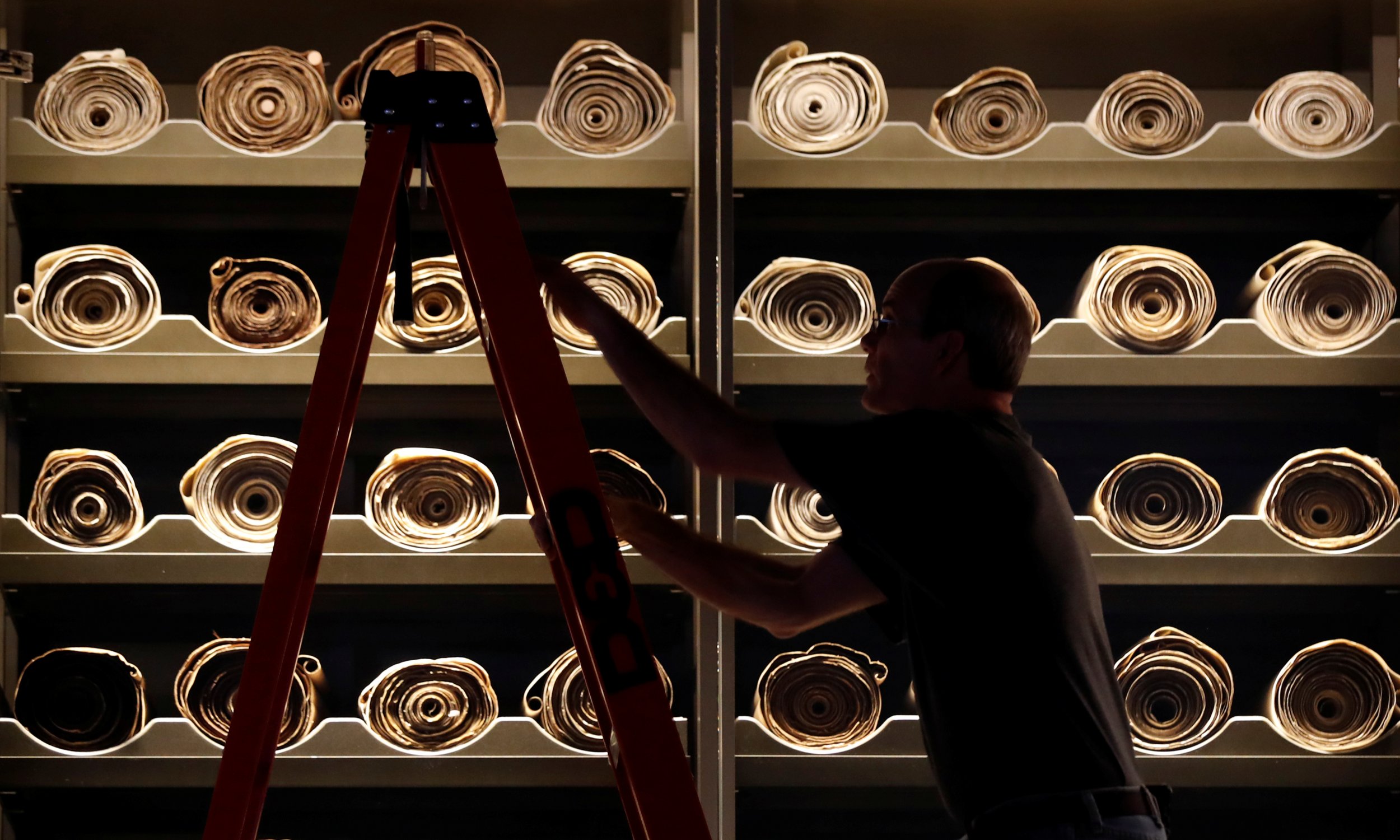
A new translation of the Dead Sea Scrolls, currently being crafted by American scholar Alison Schofield, aims to unveil new information about the ancient biblical manuscripts discovered in the Qumran Caves near the Dead Sea.
"I was always a fan of Indiana Jones, and I was always interested in the Middle East," Schofield, a professor of religious and Judaic studies, told the University of Denver. "I've been interested in the Dead Sea Scrolls for as long as I can remember."
The Dead Sea Scrolls contain some of the oldest copies of the Bible and Jewish literature from the time of the Second Temple in Jerusalem, when the Jewish population rebelled against the Roman Empire and was brutally massacred by Roman forces fighting under Emperor Titus. The manuscripts were first discovered in 1947, but new discoveries are being made as technology improves and archaeologists continue to search 12 of the caves around the Dead Sea for fragments.
In 2016, Schofield and her colleagues began excavating new fragments of the scrolls. It was the first major excavation for the Dead Sea Scrolls since the manuscripts were discovered in the 1940s.
"That was really an adventure for me," she told the university in an interview. "It was very surreal in the sense that the setting itself was very dramatic. If you are in the cave, you are hanging over a nearly-thousand-foot cliff. It is incredibly exciting and dangerous to be repelling [sic] into a cave and to work on the archaeological dig harnessed the entire time."
Mystery of Dead Sea Scrolls' authorship may have been finally solved https://t.co/2XU0NXk4az pic.twitter.com/TzhuwhjzWW
— Yalcin Al Zakzaki (@JJorbyn) November 20, 2017
By combining the old fragments of the scroll with newly discovered ones, archaeologists hope to glean new meanings and mysteries from the text. "The scrolls tell us so much about not only the origins of Judaism, but then the branching off of Christianity," Schofield said.
One of the most recent published translations of the Dead Sea Scrolls was printed in 2002 by authors Michael Wise, Martin Abegg Jr. and Edward Cook. The translation unveils information about prophets and pseudo-prophets, biblical interpretations of Genesis, ancient hymns and divination.
Recently, analysis of 30 excavated graves near the site where the Dead Sea Scrolls were discovered supports the theory that the Qumran Caves were settled 2,200 years ago by a sect of celibate men whose rituals were detailed by ancient historians Josephus and Philo.
"I don't know if these were the people who produced the Qumran region's Dead Sea Scrolls," one of the researchers told Science News. "But the high concentration of adult males of various ages buried at Qumran is similar to what has been found at cemeteries connected to Byzantine monasteries."
Uncommon Knowledge
Newsweek is committed to challenging conventional wisdom and finding connections in the search for common ground.
Newsweek is committed to challenging conventional wisdom and finding connections in the search for common ground.
About the writer
Cristina Maza is an award-winning journalist who has reported from countries such as Cambodia, Kyrgyzstan, India, Lithuania, Serbia, and Turkey. ... Read more





